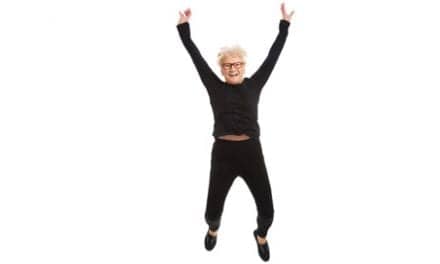According to research published ahead of print in the British Journal of Sports Medicine, brain power decline can be prevented and possibly even reversed by engaging in regular aerobic exercise. Leading cognitive neuroscientists Art Kramer (US Beckman Institute at the University of Illinois) and Kirk Erickson (University of Pittsburgh) offer a critical evaluation of the large number of studies that show how aerobic exercise and physical activity can be beneficial to the aging brain.
Cognitive decline with aging has been linked to white and grey matter deterioration in certain parts of the brain. The greatest effects of cognitive decline are usually seen in activities such as task coordination, planning, goal maintenance, working memory, and the ability to switch tasks—a group of activities termed "executive control."
Professor Kramer notes, however, that exercise treatment has the ability to positively influence these types of activities and processes. Research has shown that speed and sharpness of thought, or cognitive performance, can be increased by engaging in regular moderate exercise that makes a person breathless. Further, this type of exercise actually can increase the volume of brain tissue and improve the way in which the brain functions.
The researchers point out that the impact of exercise is not restricted to those without progressive brain diseases—exercise has also led to improvements in the brain function of Alzheimer’s disease patients.
Some studies have shown that 6 months of aerobic exercise reversed age related brain decline and that helped the plasticity of the brains of older adults (the capacity to grow and develop). Other research has found that there is less evidence of grey matter deterioration in physically fitter adults compared to their less physically fit contemporaries.
Women have also been studied to better understand the association between a lower amount of the female hormone estrogen during menopause and poorer memory and declining brain power. Kramer refers to a particular study that found hormone replacement therapy to be uncorrelated with the mechanism that leaves physically fitter women with more grey matter and better performance on measures of executive control than their less physically fit counterparts.
"We can safely argue that an active lifestyle with moderate amounts of aerobic activity will likely improve cognitive and brain function, and reverse the neural decay frequently observed in older adults," conclude the researchers.
Exercise effects on cognitive and neural plasticity in older adults
Kirk Erickson and Arthur F Kramer
British Journal of Sports Medicine (2008).
doi 10.1136/bjsm.2008.052498
Written by: Peter M Crosta
Copyright: Medical News Today
[Source: Medical News Today]




